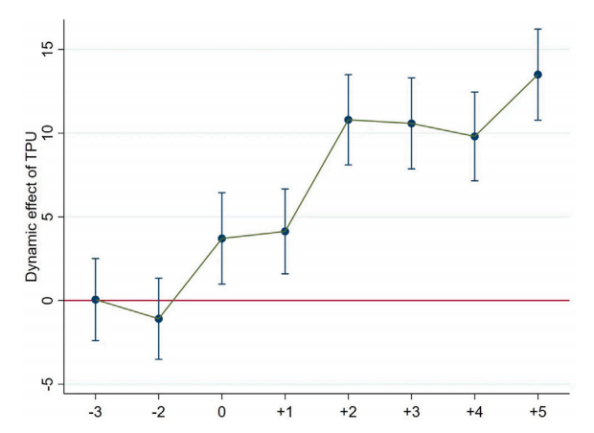近日,北京师范大学湾区国际商学院副教授崔传涛博士以第一作者身份在发展经济学领域重要期刊《Journal of Development Economics》上发表了题为《Trade policy uncertainty and new firm entry: Evidence from China》的研究论文。
本项研究为不确定性环境下理解创业活动提供了新证据,研究结果表明目的市场中降低贸易政策不确定性有助于促进大型发展中国家的国内创业活动。通过利用中国加入世贸组织的“准自然实验”,发现贸易政策不确定性减少更多的制造行业其所增加的新公司更多。贸易政策不确定性减少所带来的效应在进入壁垒较低或不可逆投资较大的行业中更为显著。此外,政策不确定性的降低通过出口和非出口渠道促进新进入者,并有助于加强区域集聚力量。作者还发现,不同地区的出口成本和进入壁垒存在异质性,这说明对于发展中国家来说,外部开放和内部改革的重要协同作用。最后,研究证明贸易政策不确定性降低加剧了行业竞争,促使更优质的进入者进入市场,并且新公司的进入在将贸易政策不确定性降低与经济表现改善联系起来方面起着非常重要的作用。
论文摘要:This study offers novel evidence that reduced trade policy uncertainty (TPU) in the destination market promotes domestic entrepreneurial activities in a large developing economy. Exploiting China’s WTO accession as a quasi-natural experiment, we find that Chinese manufacturing industries with greater TPU reduction are associated with relative increases in the new firm entry rate. The TPU effect is more pronounced in industries with lower entry barriers or larger irreversible investments. In addition, TPU reduction fosters new entrants through both the exporting and non-exporting margins and contributes to strengthening regional agglomeration forces. Heterogeneity across regions with varying exporting costs and entry barriers is also identified, illustrating the important synchronization between external openness and internal reform for developing economies. Last, we show that reduction in TPU intensifies industry-level competition, induces better-quality entrants, and that new firm entry plays a non-negligible role in linking TPU reduction to improved economic performance.”


